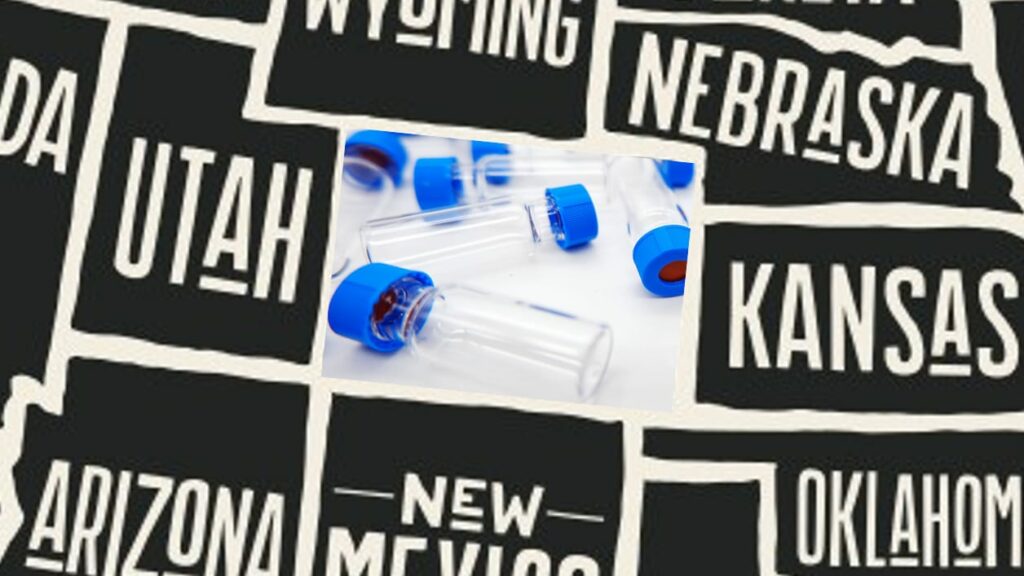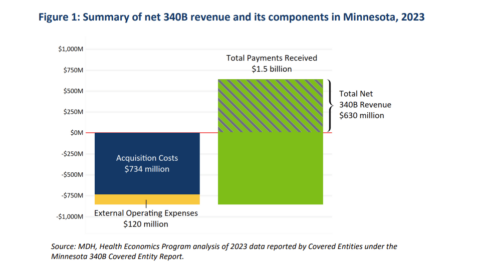If you want to search Cost Curve back issues or link to anything you read here, the web links and archive are online at costcurve.beehiiv.com. You can subscribe there, too.
The Colorado PDAB has declared J&J’s Stelara to be “unaffordable,” opening the door to the possibility that the board will price-control the medicine. Stelara joins Enbrel on the “unaffordable” list. Two other drugs, the HIV med Genvoya and the cystic fibrosis treatment Trikafta, were both deemed “not unaffordable” last winter. The board will weigh in on Cosentyx next.
There wasn’t a lot of coverage that I saw beyond this Bloomberg Law piece. On LinkedIn, Jen Graf, who listened in to the deliberations on Friday, has five takeaways from the board vote.
As Jen mentions, part of the issue is that it still remains unclear what the standards are here. No one is quite sure what makes a medicine “affordable,” and the definition isn’t getting any clearer as the process moves along.
Bloomberg Law is all over the PDAB story. In addition to the coverage out of Colorado, the outlet also looked at the legal status of the concept. In Colorado, one lawsuit — focused on the Enbrel decision — has already been filed, and pretty much every operational PDAB is bracing for suits.
Bloomberg seems to suggest that these are long-shot lawsuits that are somewhat analogous to the IRA suits, but the reporting is largely centered around the perspective of the boards themselves, so I’m not sure you can take that conclusion to the bank.
I guess I shouldn’t be surprised, but Donald Trump is trying to take credit for lower insulin prices.
I’m sure there is a meta, inside-the-Beltway take** on this that suggests that Biden is getting momentum on the issue and Trump is trying to blunt that advantage by sowing misinformation, all backed by sophisticated polling and deep thinking about campaign gamesmanship. But I find that stuff dull and unconstructive, so I’ll leave such theorizing to others. (Here’s an instant reaction story.)
The Trump claim, on Truth Social, is brief and vague and presented without any argument or evidence. It’s worth stating here, in the interest of operating in a universe of shared facts, that no Trump policies targeting insulin prices were ever implemented.
One could note that Trump, while president, did try (unsuccessfully) to push a couple of efforts that might have had an impact on insulin prices.
Narrowly, there was an executive order that would have required federally qualified health centers to pass along 340B discounts, which was dismissed at the time as a move with limited real-world impact. And he did push for the “rebate rule,” which would have required rebates, more generally, to be passed along at the pharmacy counter. Neither was ever even close to being implemented.
But I’m going to go out on a limb here and say that Trump’s Truth Social post was not an effort to begin a conversation about 340B policies.
I mean, we’re not living in some alternative, Aaron Sorkin-scripted universe.
It’s going to be a long five months.
** There is also a meta, media-criticism take here, which is that there may not be benefit to repeating claims made without evidence at all. By that metric, the policy press corps deserves credit. While The Hill and NBC covered the post, I didn’t see much beyond that, despite the catnip of using the words “Trump” and “insulin” in a headline. So there’s lots of low-key credit for restraint to go around.***
*** Yes, given that take, there is a certain irony/hypocrisy in me not showing that restraint. I’m just fascinated by the way that insulin now has a political life of its own, almost entirely divorced from any real-world concerns.
Today is the day by which drugmakers are supposed to respond to the FTC’s latest effort to push delisting of Orange Book patents, which got a big Washington Post writeup. But the story does not mention — until the very last paragraph — the elephant in the room: the FDA’s utter uninterest in setting standards.
So new rule: any time I talk about this topic going forward, I’m going to link to Ed Silverman’s great STAT story on the FDA inaction here, which does a good job of providing the context for why manufacturers are so frustrated.
Elsewhere:
New York State is apparently going to look at importation. It won’t work any better in New York than it will in Florida or Colorado, but I bet it polls great.
Interesting comments at BIO from Amgen CEO Bob Bradway on the IRA. My favorite quote highlights what might be the biggest unintended consequence of the law: “I would venture to guess that none of the legislators who advocated for that legislation recognize what the long-term effect will be on oncology research in this country.”
This story about drug pricing from Quartz is not great journalism, but I’m always fascinated when reporters who are not deep in health policy report on the issues. It’s a window into how the system looks to those who don’t spend every day re-reading legislative text.





